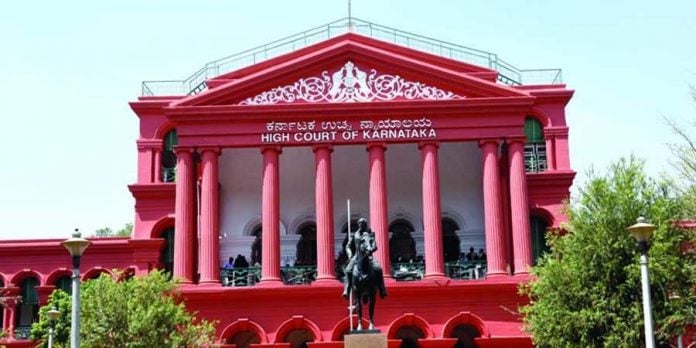The Karnataka High Court has observed that Caste Certificate and Income Certificate issued under the 1990 Act are two different and distinct certificates, which cannot be treated alike.
The Dharwad Division Bench of Justice S.G. Pandit and Justice Anant Ramanath Hegde passed the verdict, while setting aside an order of the State Administrative Tribunal that had directed the Karnataka High School Examination Board to consider an application for a teacher’s post, despite her not having submitted a valid creamy-layer certificate within the prescribed time limit, the
On contention of the respondent that an income certificate dated seven years ago had been initially submitted, the Court noted that there was a purpose behind prescribing the validity period of income certificates as five years.
“The income may increase or decrease, depending on his avocation/ profession or employment. Government servants/ employees or salaried class would have a steady increase in their income from year to year. For professionals, businessmen and such persons in other avocation income may increase or decrease,” it said.
“Caste Certificate and Income Certificate issued under 1990 Act are two different and distinct certificates. Both certificates cannot be treated alike. In respect of caste certificate, for example, if a person is Scheduled Caste or Scheduled Tribe, he is so by birth and not by any subsequent event or development. A caste certificate issued by the competent authority is only an affirmation of fact which is in existence, i.e., caste status. But in so far as Income certificate issued by the competent authority is concerned, depends on the income of the parents of a candidate concerned existed as on the date of issuing such certificate,” it added.
In the instant case, the petitioner-board had invited applications to fill up the post of Secondary School Assistant Teacher Grade-II. The respondent-applicant applied for the post claiming reservation under ‘Women, Rural and Kannada medium’. She was selected in an additional list, and was asked by the selection authority to produce original documents for verification by a specific date, for which she produced her documents including the creamy-layer certificate.
Her application was rejected on the ground that she failed to submit a valid creamy-layer certificate (not older than 5 years) within the period prescribed. She challenged the rejection of her candidature in the Karnataka State Administrative Tribunal, which allowed her petition and directed the petitioner to consider her case for appointment to the post of a Secondary School Teacher.
Aggrieved, the selection authority approached the High Court.
The High Court noted that candidates who claim reservation under certain categories, including rural reservation must produce a caste and income certificate issued from the competent revenue authority.
A candidate claiming rural reservation is required to produce a creamy-layer certificate. The clause in the notification inviting applications made it clear that the candidate is required to produce the relevant certificate at the time of verification or when the authority calls for it.
The Karnataka Scheduled Castes, Scheduled Tribes and Other Backward Classes (Reservation of Appointments, Etc.) Act, provides for issuance of caste and income certificate, while the Karnataka Scheduled Castes, Scheduled Tribes and Other Backward Classes (Reservation of Appointments, Etc.) Rules provide the procedure for issuance of caste and income certificate as well as validity certificate.
The Court noted that according to these Rules, a caste certificate is valid until it is cancelled, whereas an income certificate is valid for a period of 5 years.
As the creamy layer certificate which the respondent-applicant had submitted was more than five years old, it has expired as per the time prescribed under the 1992 Rules, the Court observed. The certificate which she submitted subsequently also cannot be taken note of, since it was after the last date prescribed under the notification inviting applications.
Terming decision of the Tribunal as erroneous, the High Court thus allowed the petition and quashed the order under challenge.
The petitioner was represented by Government Advocate GK Hiregoudar. Advocate Ramesh Zirali represented the respondent.
Case name: The Selection Authority and Secretary v. Geetha Dattatreya Gokarn


